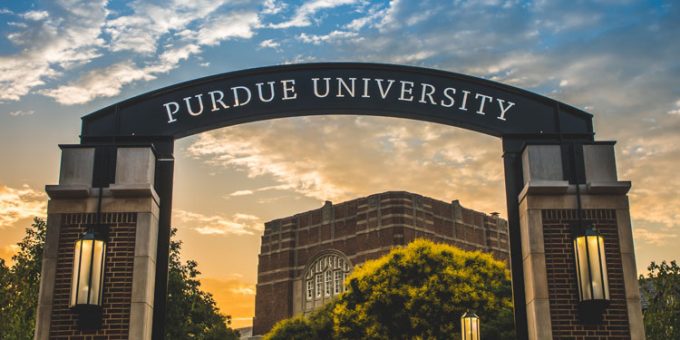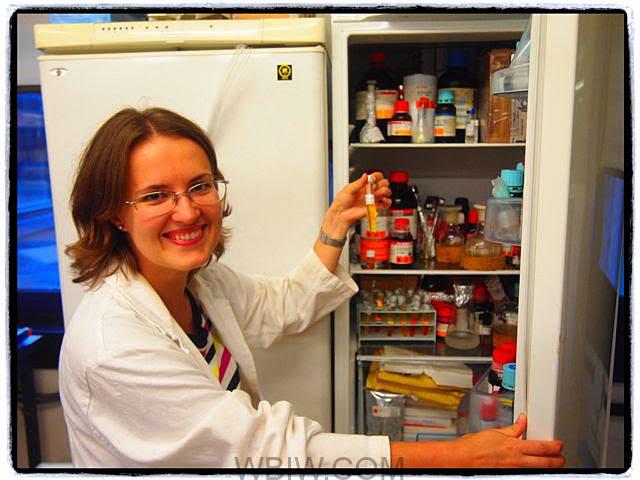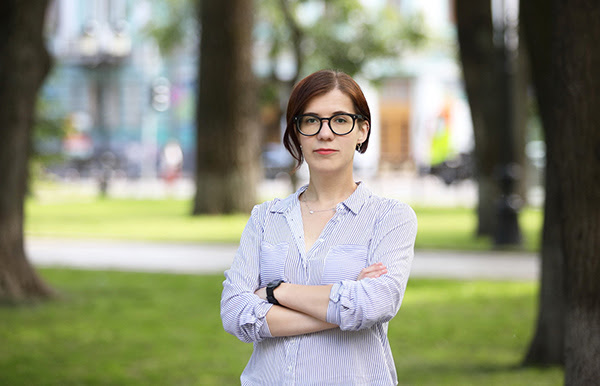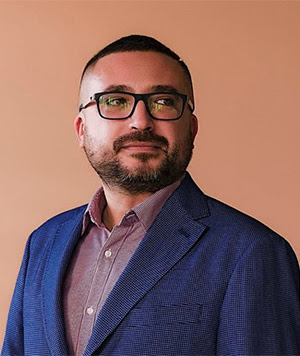
WEST LAFAYETTE — Each Ukrainian scholar coming to Purdue University this summer to resume their studies and research has their own story, overcoming incredible and impossible obstacles and escaping — often with their families — from the horrors of Russia’s military invasion that has already displaced nearly 7 million people and left devastation, destruction, and disruption across the Eastern European country since late February.

In an effort to provide a portion of promise for its academic brethren in Ukraine during this tumultuous and uncertain time, Purdue is welcoming 20 faculty members and researchers beginning this month through its recently established Ukrainian Scholars Initiative.
“Our aim is to make at least one small contribution to help the Ukrainian people in this moment of peril,” Purdue President Mitch Daniels said. “Our hope is that we can offer refuge to these scholars and a chance to continue pursuing their work and then see them return to a safe and free Ukraine. But while they are with us, I don’t doubt that they will personify and perhaps share with our students the precious value of freedom and the constant need to defend it from its enemies.”
The program draws a deep diversity of scholars
Scholars from Ukraine are preparing to arrive for at least a 12-month stretch across a diversity of disciplines — from chemistry, library sciences, psychology, linguistics, sociology, and neuroscience to political science, management, history, and earth and planetary sciences.
And they’re escaping the destruction that shuttered their universities and devastated prominent Ukrainian cities such as Mariupol, Kharkiv, Odessa, and the capital city of Kyiv.

Purdue Ukrainian scholar Tetiana “Tanya” Gordiienko, who was pursuing a doctorate in media and communication at the National University of Kyiv-Mohyla Academy before the war, looks to resume her studies at Purdue. “This opportunity means so much to me,” she says.
For doctoral student Tetiana “Tanya” Gordiienko, Purdue will play an essential role in helping her complete her Ph.D. when she arrives next month as one of 20 individuals through Purdue’s Ukrainian Scholars Initiative.
“This opportunity means so much to me,” said Gordiienko, a former journalist whose husband, veteran photojournalist Vitaliy Nosach, will remain — at least in the short term — as all Ukrainian men ages 18 to 60 are not allowed to leave the country.
Gordiienko will resume her studies at Purdue’s West Lafayette campus, researching news consumption in society and the visual portrayal of the COVID-19 pandemic and other crises in Ukraine. She is pursuing her doctorate in media and communication at the National University of Kyiv-Mohyla Academy.
Gordiienko was familiar with Purdue through its highly regarded Online Writing Lab, which was recommended by a professor as a resource for a doctoral class to improve English academic writing skills.
“I remembered the logo of Purdue very clearly, and when I opened the link, I said, ‘Oh, I know this university’ and thought this would be a very good place to study, to get new experiences,” Gordiienko said. “And the more I read about Purdue, the more impressed I got.”

‘We used to have a good life’
Scholar Ihor Lantukh, a professor of psychology, economics, and history at the National University of Kharkiv Lantukh, has expertise in entrepreneurship after the abolishment of serfdom in the 19th and 20th centuries. He plans to restart his research at Purdue, investigating the psychological aspects as well as historical parallels to the late 20th and early 21st centuries. Joining him in America will be his wife and their infant daughter.
“We used to have a good life, used to dream about the future for our daughter. All our life has been destroyed by Russia,” Lantukh said. “Now, we are looking for opportunities to survive and raise a baby, dreaming about one thing: peace in Ukraine and the day we will be able to come back home.”
Borenko: Beginning of a lasting academic relationship
Yaryna Borenko gained safe passage to Poland, the first stop on her way to Purdue, and left behind, for now, the devastation to her home city of Kyiv. Her family and those close to her, she said, are safe. Thankfully. And some of her friends and colleagues have joined Ukraine militarily in the battle against Russia, the second conflict between the two countries since 2014.
“It’s the second time. You know what to expect, but you understand many people will not come back,” said Borenko, who studies human rights and citizenship.
Borenko, who also serves as a trainer and advisor for the Skills Lab at the Women’s League of Donechchyna in Mariupol, arrived at Purdue on June 16. Christopher Yeomans, a professor and head of Purdue’s Department of Philosophy, will serve as Borenko’s host and also said she will be welcomed by its Human Rights Program, which Yeomans co-directs.
“Everybody at Purdue felt like this was a historical injustice that demanded a response and a response appropriate to the kind of institution we are,” Yeomans said.
Pavlishchuk: Hopeful to resume research efforts
A chemistry faculty member at Taras Shevchenko National University of Kyiv before the war, Anna Pavlishchuk plans to continue her research at Purdue, examining new metallic complexes and their magnetic functionality. This focus is vital for developing contrasting agents for MRIs and other imaging technologies.
Since Russia invaded her country, Pavlishchuk said Kyiv has never looked as empty as it does now — even at the height of shutdowns stemming from the COVID-19 pandemic. Though her university’s buildings remain closed, classes restarted in early April despite the war after they had first moved online in February because of a COVID-19 outbreak.
Despite the heartbreaking circumstances that are bringing Pavlishchuk to America, she is excited about the opportunity to resume her research at Purdue while continuing to support her students in Kyiv. “One of the most wonderful things (during this time) is how people are helping and supporting each other,” she said.
The Purdue Ukrainian Scholars Program, which was launched on March 25, is designed to directly help those faculty members and scholars in Ukraine whose academic pursuits have been derailed by the conflict, said Mike Brzezinski, Purdue’s dean of international programs.
While at Purdue, Ukrainian visiting scholars will either engage in their own research or support research conducted by Purdue faculty members, he said. Additionally, some scholars enrolled in doctoral programs and at the dissertation research stage will be at Purdue.
Stacey Connaughton, director of the Purdue Policy Research Institute and the Purdue Peace Project, who is co-hosting Gordiienko, believes Purdue has a responsibility to care for one another during times of duress, particularly in response to a conflict like what’s happening to Ukraine.
“I believe that really strongly,” she said. “This certainly aligns with our mission as a leading global university. We conduct research that makes a difference. We do transformative learning that has a tremendous impact. During extreme crises like this, we are all hailed to continue that shared commitment to humanity.”
Read more about the Ukrainian scholars and their journey to Purdue online.
=



